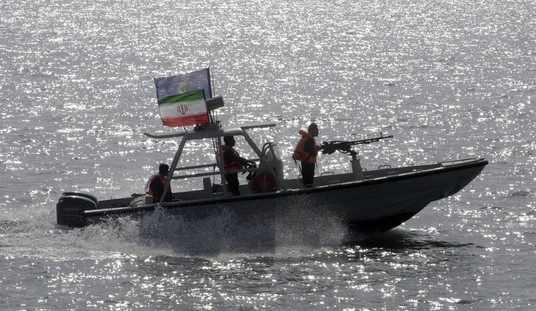If there was ever a sign that the foreign policy establishment is beginning to look askance at Obama’s nuclear deal, one need look no further than today’s Wall Street Journal. Two former secretaries of state and foreign policy icons, Henry Kissinger and George Schultz, join forces in pointing out the danger Obama is courting in this deal. While giving Obama credit for the best intentions (I fall into the Dick Cheney camp in this regards) they make the point that I made nearly a month ago:
Absent the linkage between nuclear and political restraint, America’s traditional allies will conclude that the U.S. has traded temporary nuclear cooperation for acquiescence to Iranian hegemony. They will increasingly look to create their own nuclear balances and, if necessary, call in other powers to sustain their integrity. Does America still hope to arrest the region’s trends toward sectarian upheaval, state collapse and the disequilibrium of power tilting toward Tehran, or do we now accept this as an irremediable aspect of the regional balance?
Some advocates have suggested that the agreement can serve as a way to dissociate America from Middle East conflicts, culminating in the military retreat from the region initiated by the current administration. As Sunni states gear up to resist a new Shiite empire, the opposite is likely to be the case. The Middle East will not stabilize itself, nor will a balance of power naturally assert itself out of Iranian-Sunni competition. (Even if that were our aim, traditional balance of power theory suggests the need to bolster the weaker side, not the rising or expanding power.) Beyond stability, it is in America’s strategic interest to prevent the outbreak of nuclear war and its catastrophic consequences. Nuclear arms must not be permitted to turn into conventional weapons. The passions of the region allied with weapons of mass destruction may impel deepening American involvement.
These are the salient points.
Verification can’t prevent an Iranian nuke. Iran is a large nation. We don’t know, with certainty, what facilities they have. Iran has refused to allow the IAEA to conduct snap inspections of the facilities we know about. Russia and China will be running interference for Iran in the UN.
Once sanctions are lifted they will stay lifted. China and Russia will not allow reinstatement of sanctions on Iran. There is no evidence that Congress can muster the votes to force Obama to adhere to existing sanctions.
Iran’s R&D program is untouched. The agreement expires over the course of ten years. In the meantime, their ability to carry out R&D on nuclear weapons is unconstrained.
Iran’s centrifuge stockpile is not touched. In theory some of the centrifuges are put under IAEA seal and subject to periodic, and announced, inspections.
There is no evidence that Iran has an interest in regional stability. To the contrary. Iran has an interest in fomenting conflict and unrest throughout the Middle East because they will not be affected by that conflict. Even in combating ISIS, Iran has still pursued a strategy of treating the US as an enemy.
The nuclear deal with Iran is bad on every conceivable level. For the sake of a short period of faux-peace the Obama administration has inflicted a nuclear war upon the Middle East.















Join the conversation as a VIP Member